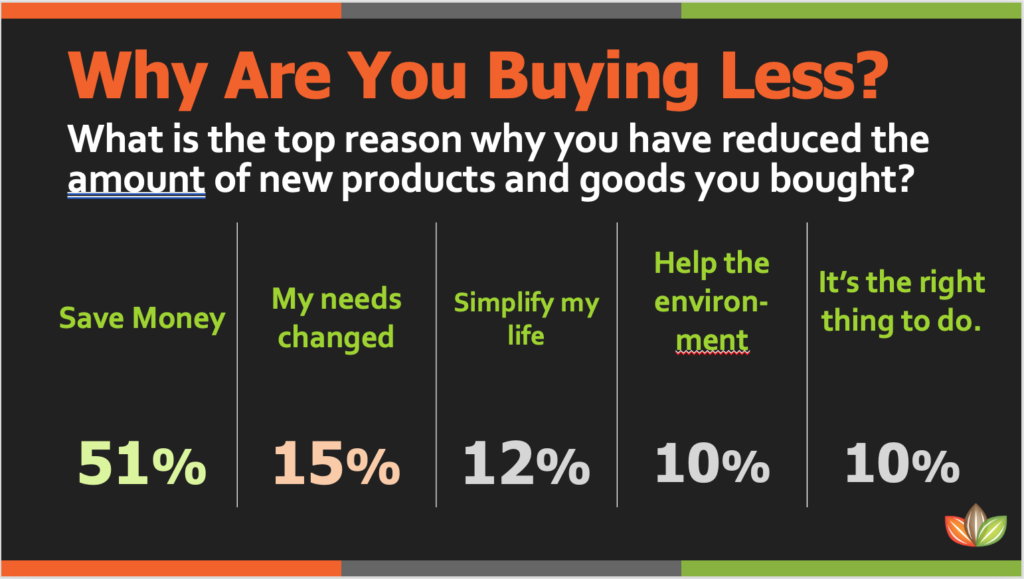
We love working on all kinds of waste and sustainability issues with our clients, and we especially enjoy the challenge of moving people toward a more zero waste lifestyle. Our most recent presentation for the CRRA Conference (see slideshow below) looked at the challenge of “selling folks” on the behavior of buying less stuff. “Selling Nothing” introduced some ways of encouraging less consumption, such as by focusing on specific items, or reminding people of the positive feeling that comes from sharing or helping others, or by focusing on specific behaviors, for instance holiday gift-giving, to encourage buying less stuff.
We then presented results of a brief survey of Californians about their feelings around any recent changes in their consumption habits. Many of the questions were borrowed – well, reused — from a 2015 survey done in New Zealand about the connection between buying and people’s feeling of well-being.
A few findings from our July 2021 survey, which gathered 350 responses from Californians:
- A majority of respondents (53%) confirm they are consciously reducing the amount of stuff they have bought in the last 3 months.
- Unsurprisingly in this time of economic uncertainty and pandemic effects, over half of those who bought less did so because they had less money to spend or wanted to save more. These answers could give us some ideas about how to position non-consumption.
- More than two-thirds of respondents agreed with statements about over-consumption’s negative impact on “future generations” and “the planet.” So seemingly awareness is not the issue in cutting consumption, it’s more a question of persuasion.
- The final question of the survey was “Do you consider yourself an environmentalist?” — asked at the end so as not to prejudice responses to the other questions. 43% said yes, 34% said no, and 18% weren’t sure if they considered themselves environmentalists. The comments revealed some tensions: some considered being “green” too hard or that environmentalists are too radical, while a few were outright hostile to the label.
Key takeaways include:
- “Selling” not buying in general is a tough challenge; try focusing on specific actions, items or situations in order to chip away at the social pressure to consume.
- While we encourage source reduction to tackle the issues of waste and climate change, there are many reasons people may reduce consumption that could be included in a source reduction campaign. A primary driver is saving money.
- A majority of respondents understand that rampant consumption is harmful to people and planet in the long run. BUT…
- A majority also acknowledge that buying stuff makes them happy. So that clarifies the challenge for outreach campaigns that aim to reduce consumption – how can we offer a form of happiness to replace the happiness of buying?
Our research and efforts continue!
See the presentation: